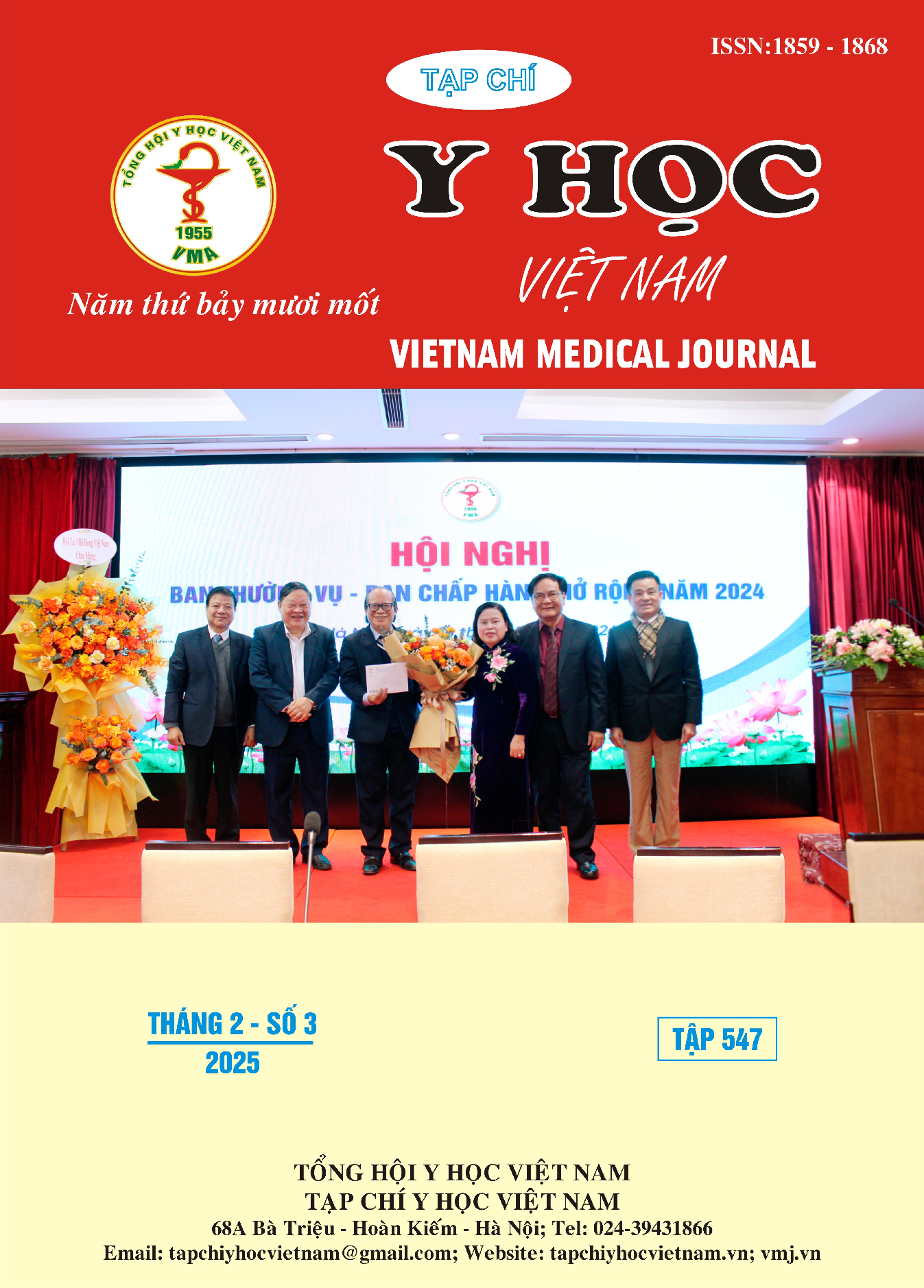ĐẶC ĐIỂM LÂM SÀNG RĂNG NANH NGẦM
Nội dung chính của bài viết
Tóm tắt
Mục tiêu: Mô tả đặc điểm lâm sàng răng nanh ngầm. Đối tượng và phương pháp: Nghiên cứu mô tả cắt ngang được thực hiện trên 80 bệnh nhân được chẩn đoán răng nanh ngầm đến khám và điều trị tại khoa Răng Hàm Mặt Bệnh viện Đại học Y Hà Nội, trung tâm kỹ thuật cao, Viện Đào tạo Răng Hàm Mặt và bệnh viện Răng Hàm mặt Trung Ương Hà Nội. Kết quả: Răng nanh ngầm một bên là chủ yếu chiếm tỉ lệ 85%, và răng nanh ngầm hai bên ít gặp hơn chiếm 15%. Các đặc điểm lâm sàng hay gặp của răng nanh ngầm: Khấp khểnh thiếu chỗ 81%, răng cửa bên bị nghiêng xa 75%, lệch đường giữa 78% và răng nanh sữa còn trên cung hàm 48,75%.
Chi tiết bài viết
Từ khóa
Răng khấp khểnh thiếu chỗ, răng cửa bên bị nghiêng xa và lệch đường giữa là các đặc điểm lâm sàng nổi bật của răng nanh ngầm
Tài liệu tham khảo
2. Ericson, S. and J. Kurol, Resorption of maxillary lateral incisors caused by ectopic eruption of the canines: A clinical and radiographic analysis of predisposing factors. American Journal of Orthodontics and Dentofacial Orthopedics, 1988. 94(6): p. 503-513.
3. Jacoby, H., The etiology of maxillary canine impactions. American Journal of Orthodontics, 1983. 84(2): p. 125-132.
4. Harada-Karashima, M., et al., Age-related changes in the effect of rapid maxillary expansion on the position of labially impacted maxillary canines: case-control study. American Journal of Orthodontics and Dentofacial Orthopedics, 2021. 159(3): p. 305-311.
5. Hadler-Olsen, S., et al., Double vs single primary tooth extraction in interceptive treatment of palatally displaced canines:A randomized controlled trial. The Angle Orthodontist, 2020. 90(6): p. 751-757.
6. Bishara, S.E. and D. Ortho, Impacted maxillary canines: A review. American Journal of Orthodontics and Dentofacial Orthopedics, 1992. 101(2): p. 159-171.
7. Chaushu, S., et al., The labiopalatal impacted canine: Accurate diagnosis based on the position and size of adjacent teeth: A cone-beam computed tomography study. American Journal of Orthodontics and Dentofacial Orthopedics, 2023. 163(5): p. 690-699.
8. Becker, A. and S. Chaushu, Etiology of maxillary canine impaction: A review. American Journal of Orthodontics and Dentofacial Orthopedics, 2015. 148(4): p. 557-567.
9. Guarnieri, R., et al., Local factors relating to mandibular canine impaction: A retrospective study. American Journal of Orthodontics and Dentofacial Orthopedics, 2024. 165(5): p. 556-564.


